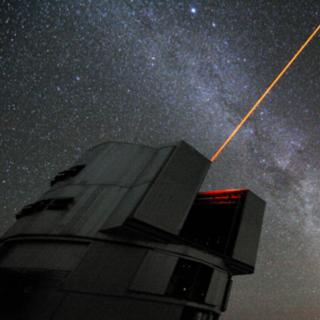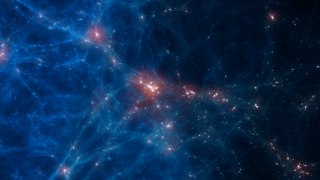Bibcode
Sarrato-Alós, J.; Brook, C.; Di Cintio, A.
Referencia bibliográfica
Monthly Notices of the Royal Astronomical Society
Fecha de publicación:
10
2023
Número de citas
1
Número de citas referidas
1
Descripción
This work explores the mixing rate of metals in the interstellar medium (ISM), comparing observational constraints from our solar neighbourhood to high resolution cosmological hydrodynamical simulations of Milky Way (MW)-like galaxies. The mixing rate, described by the coefficient C, is varied in simulations between 0 and 0.05, with resultant simulated galaxies compared to observations of metallicity dispersion in young star clusters, H II regions and neutral gas in the disc of the MW. A value of C between 0.003125 and 0.0125 is found to self-consistently match a range of observables, with a best estimate of C = 0.0064 ± 0.0004. We demonstrate that the relationship between metal dispersion in young stars, H II regions and neutral gas, versus the coefficient C, can be described by a power law. These constrained mixing rates infer a comparatively well-mixed ISM in the solar neighbourhood, at odds with some recent observations that have reported a highly inhomogeneous ISM. The degree of mixing suggested by this work is lower than what often employed in many hydrodynamical simulations. Our results have implications for studying the metallicity distribution of stars as well as of gas in the interstellar and circum-galactic media.
Proyectos relacionados

Evolución Galáctica en el Grupo Local
La formación y evolución de galaxias es un problema fundamental en Astrofísica. Su estudio requiere “viajar atrás en el tiempo”, para lo cual hay dos enfoques complementarios. El mas extendido consiste en analizar las propiedades de las galaxias a diferentes distancias cosmológicas. Nuestro equipo se concentra en el otro enfoque, denominado
Matteo
Monelli

Astrofísica Numérica: Formación y Evolución de Galaxias
Entre las cuestiones fundamentales en Astronomía y Astrofísica están la formación y evolución de galaxias. Las escalas de tiempo y tamaño son tan astronómicas que su observación en galaxias individuales es imposible. Solo con el uso de simulaciones numéricas es posible entender la formación de estructuras cósmicas dentro del actual marco
Claudio
Dalla Vecchia